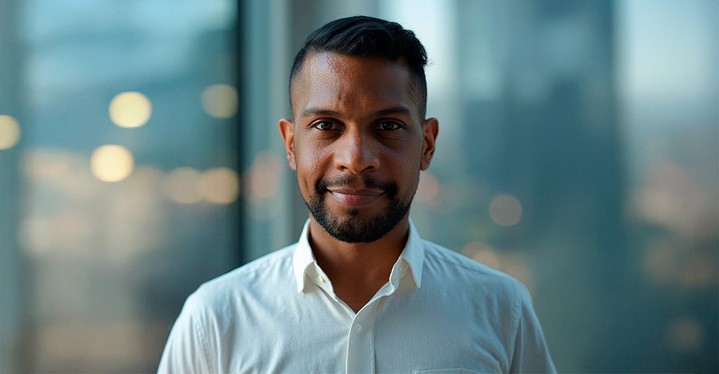The Power of People-First Leadership
Richard Hinton has dedicated over 15 years to guiding organizations through change by placing people at the center of leadership. His work spans from early-stage startups to large national enterprises, where he has focused on building inclusive and resilient cultures. These cultures are rooted in intentional coaching, active listening, and actions that promote equity. Hinton believes that his passion for coaching is deeply tied to his love for leadership. Throughout his HR career, which has covered a wide range of industries and business models, his focus has always been on developing leaders who listen, guide, and lead with purpose.
Coaching as a Core Leadership Function
For Hinton, coaching isn’t just another trend or a perk for employees—it’s an essential part of being a leader. “If you’re a leader, you should be coaching,” he says. “Coaching is leadership.” Over the years, he has helped leaders shift their approach from directive management to intentional coaching, which leads to stronger teams and better outcomes. “I try to meet people where they are,” Hinton explains. “Some leaders are already emotionally intelligent, while others need more support. But the key is to start building that relationship and model what effective coaching looks like.”
In previous roles, Hinton mentored emerging leaders across different functions, offering personalized guidance to help them increase their influence, clarify their values, and navigate complex challenges. “I currently coach six emerging leaders from diverse backgrounds. Helping them scale their influence and gain clarity on their values has been incredibly rewarding,” he shares. By modeling coaching for the leaders he supports, Hinton encourages a ripple effect throughout organizations.
Tolong support kita ya,
Cukup klik ini aja: https://indonesiacrowd.com/support-bonus/
Leading Through Listening
Listening is one of Hinton’s most powerful leadership tools. “Listening is like a leadership superpower,” he says. It has helped him guide organizations through growth, transformation, and even workforce reductions. At Assembly OSM, where he served as VP, Head of People, Hinton implemented tools like Lattice to formalize performance conversations while also creating space for candid feedback and transparent communication. “I really tried to open up more dialogue and communication change throughout the organization,” he explains. “That meant training on feedback and helping leaders really hear what their teams were saying.”
Hinton emphasizes the importance of being fully present and responsive during critical moments. “I’ve been able to listen at scale, during restructures, rapid growth, or reductions in force. It’s about surfacing tensions before they erode trust.” He positions himself as a consistent sounding board, ensuring leaders and teams know they are heard. “Not only am I listening, but I’m modeling how to listen effectively. That creates a culture where communication is real, not just a talking point.”
Equity and Inclusion, Grounded in Action
Hinton sees coaching as a tool for driving both equity and performance. “Coaching also fuels change,” he says. “It’s not just about outcomes. It’s about building systems that are fair and inclusive.” Equity is a central theme in his work. “It’s why I’m in this space, why I studied what I studied,” he shares. He has trained managers to reduce bias in performance reviews, helped build sponsorship programs to elevate underrepresented talent, and guided leadership teams through sensitive, transformative conversations.
“I try not to lead with the term ‘DEI,’ especially in places where that language can shut people down. Instead, I focus on relationships. It’s about being curious and asking the right questions.” One of his proudest achievements has been increasing diverse leadership representation. “That didn’t happen through quotas or checklists,” he says. “It happened through real coaching, real conversations, and thoughtful advocacy.”
Human Leadership in a Technology-Enabled World
While Hinton embraces technology, he believes leadership must remain deeply human. “With AI, you have more tools and resources, but coaching still needs a human layer,” he says. “You’re looking at the individual, treating people as humans.” An AI enthusiast who is both curious and cautious, Hinton uses tech to support, not replace, people-centered leadership. “I might use AI as a baseline,” he says. “But coaching is about the person. It’s about connection. That’s something no tool can replicate.”
He has successfully introduced AI-informed insights to improve hiring, retention, and workforce planning, but always with a personal touch. “Technology is fantastic,” he adds. “But we’re social beings. We need real interaction. We need relationships.”
Looking Forward
Hinton remains deeply committed to mentoring, coaching, and advancing equity across workplaces. “This is the work I love, and I’m excited for what’s next,” he says, as he explores new opportunities with organizations that value leadership, culture, and people as a strategic priority.







